PhD Opportunities at CRADLE Robotics and AI

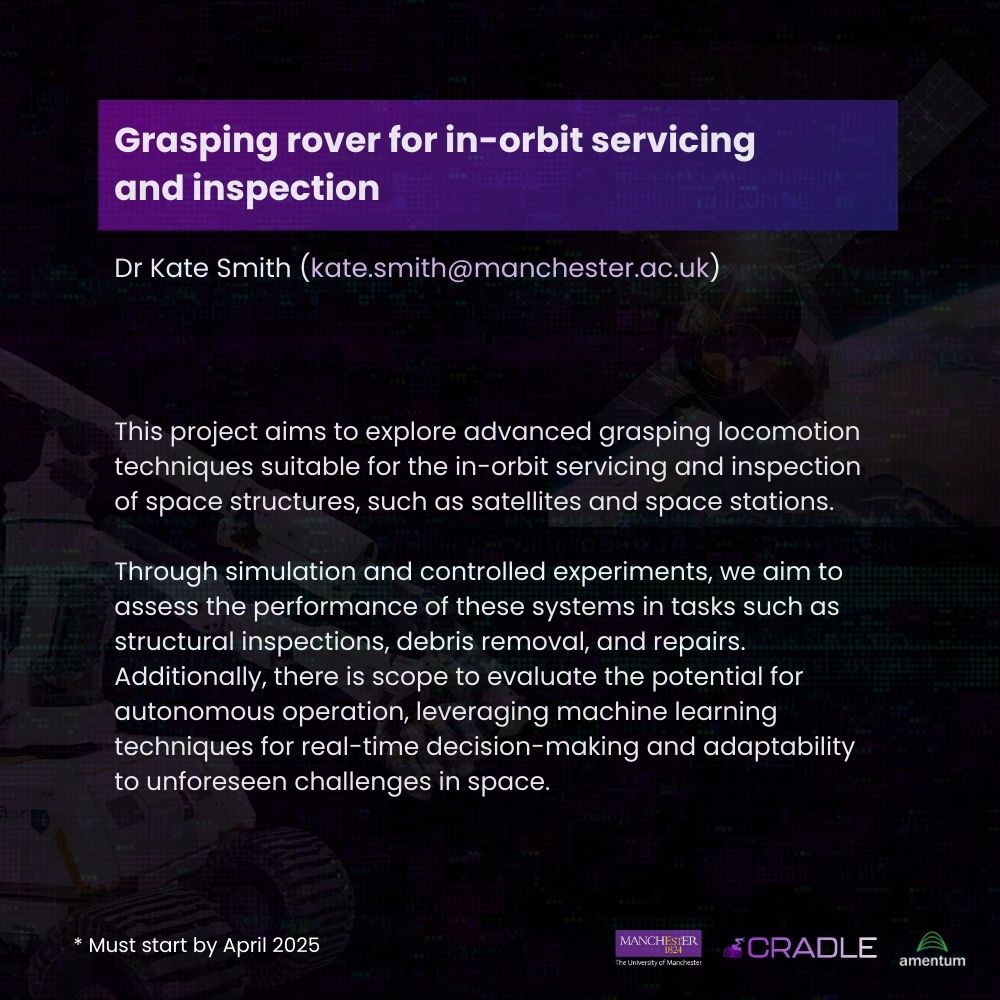
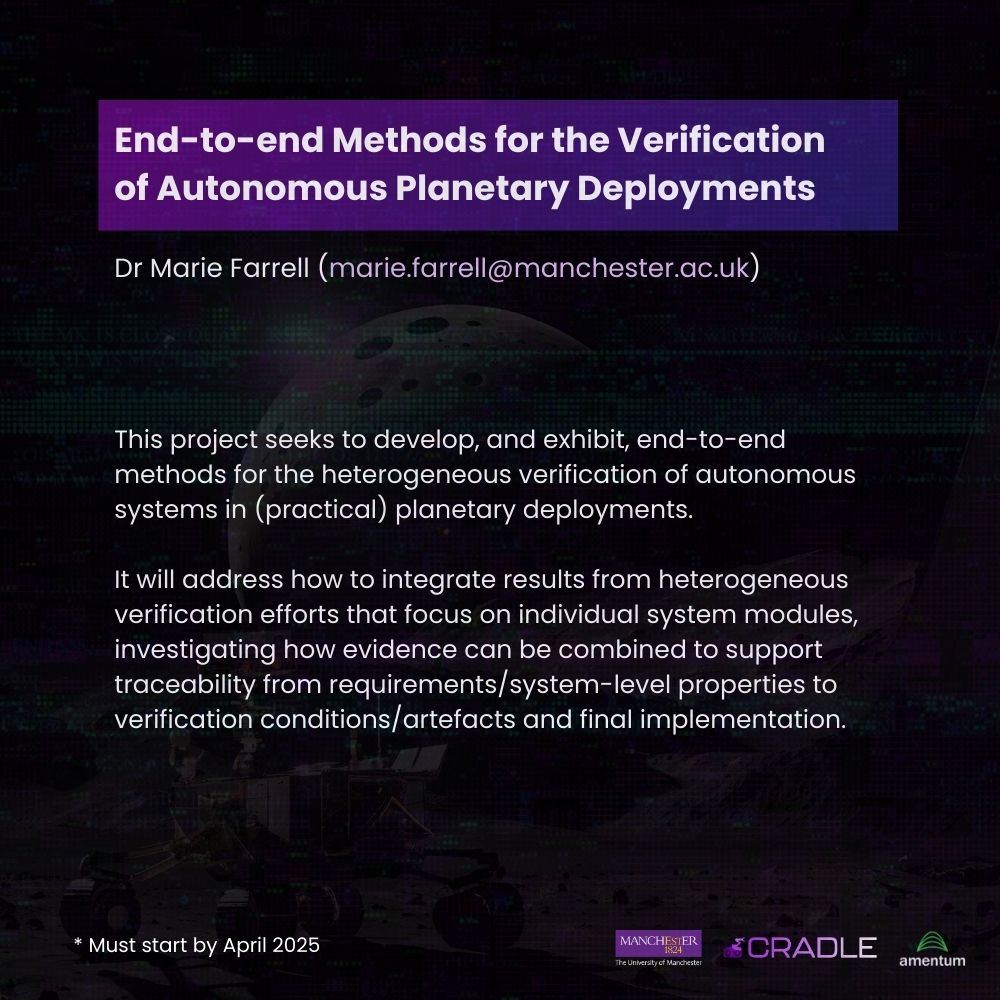



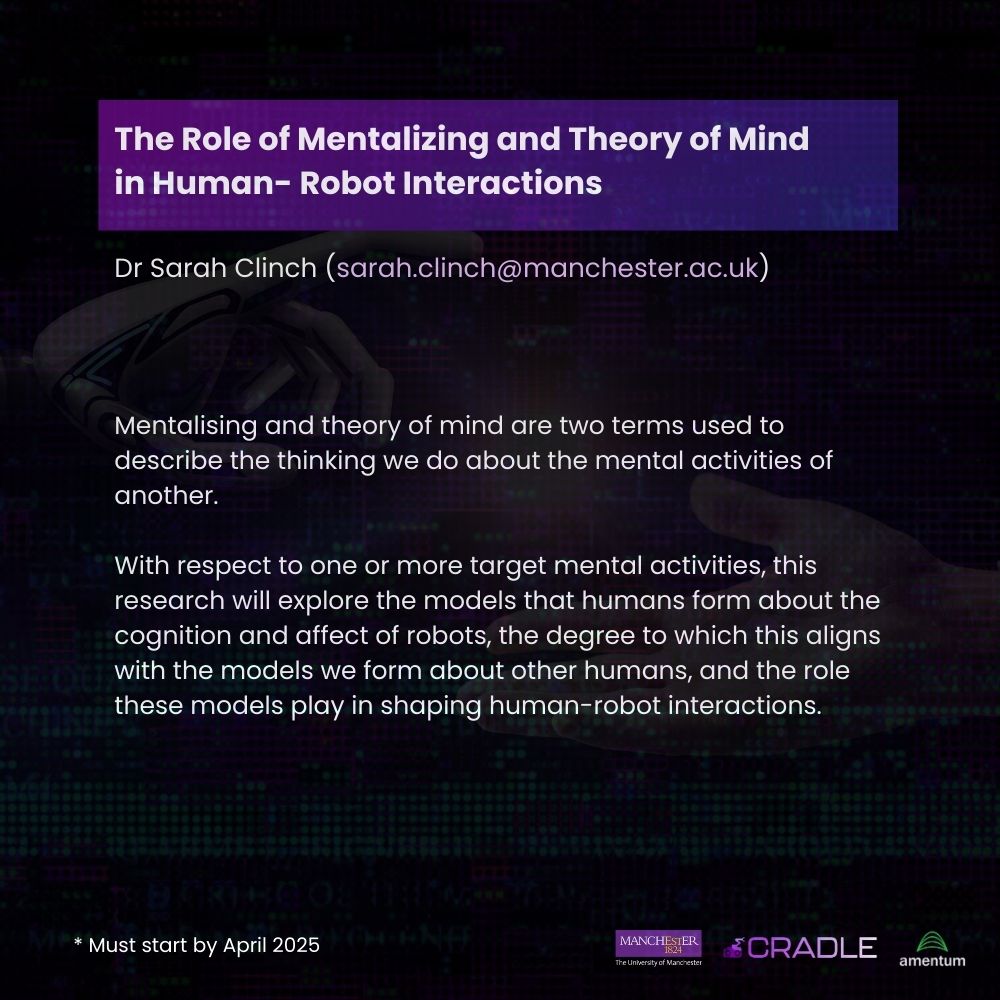

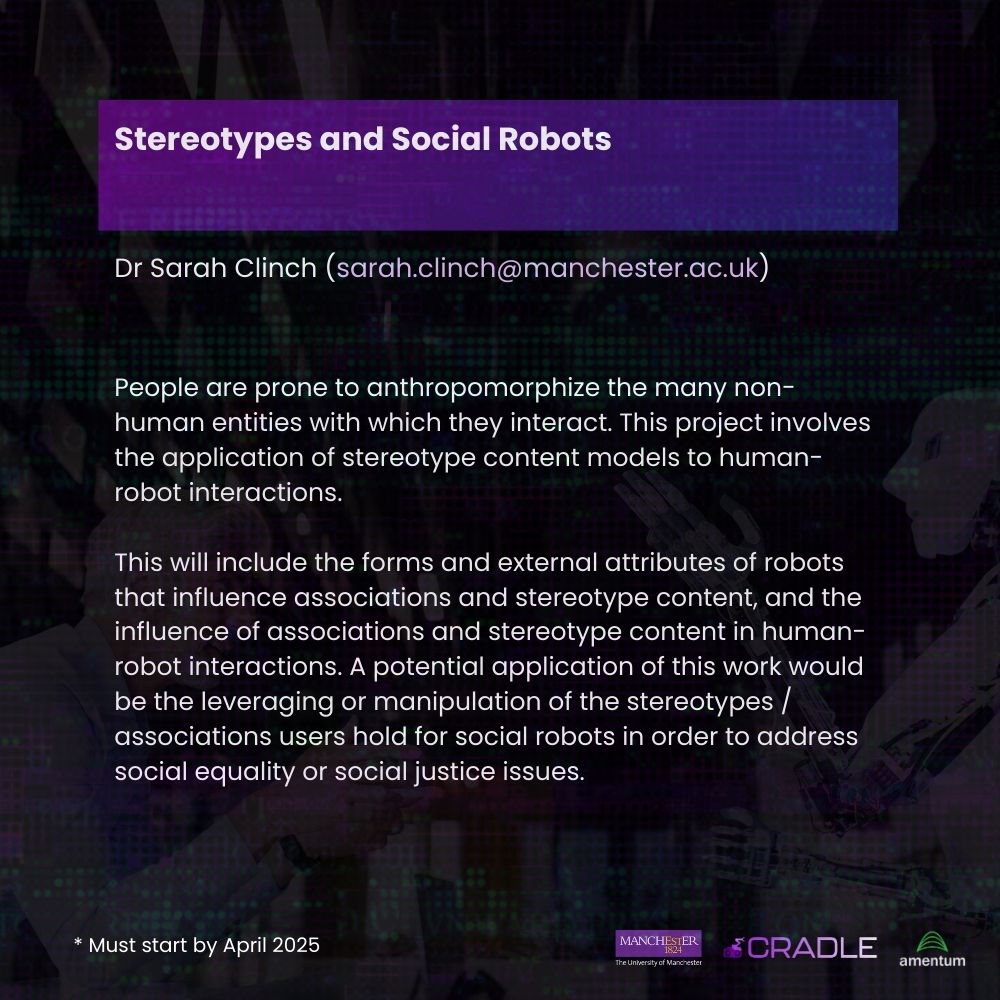
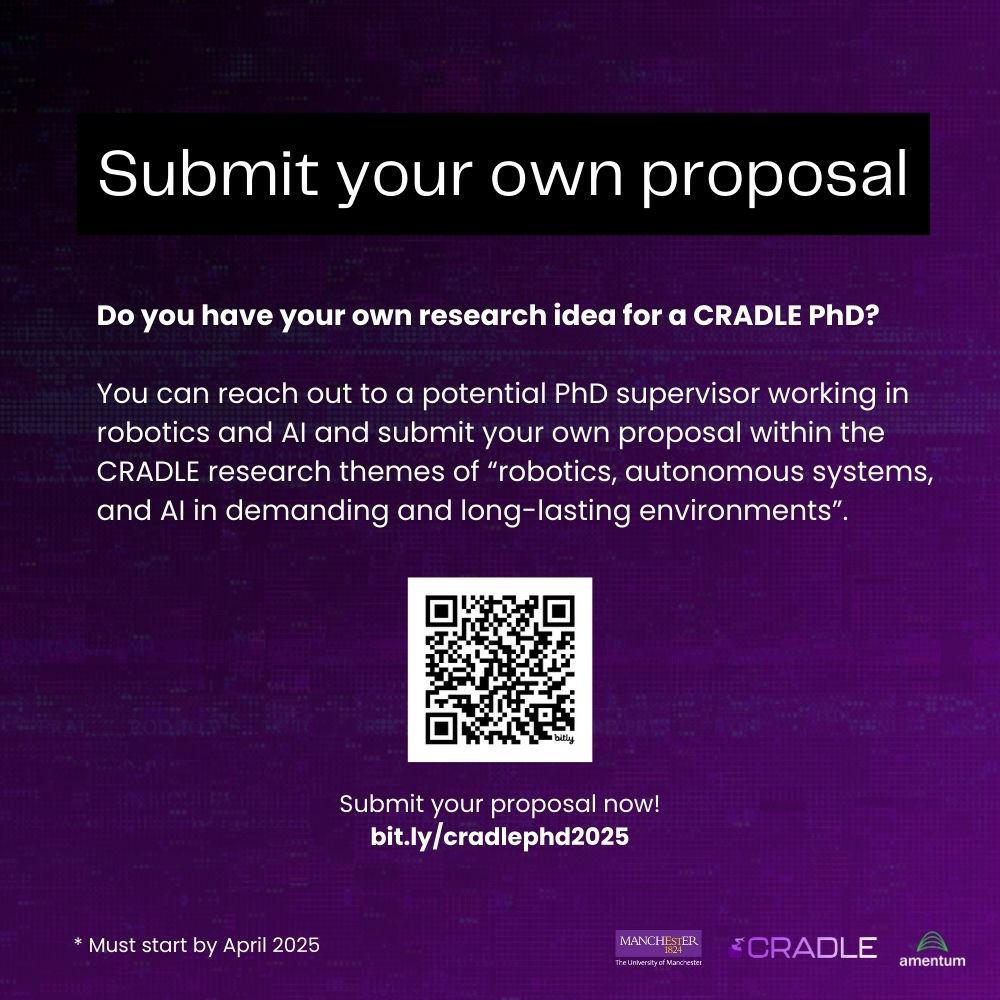
CRADLE Robotics and AI PhD Programme – Open to UK and International Students!
(Must start by April 2025)
The Centre for Robotic Autonomy in Demanding and Long-lasting Environments (CRADLE) is an EPSRC-funded Prosperity Partnership that brings together the industrial experience that Amentum has in applied robotics and autonomous systems (RAS) with the research expertise at the University of Manchester in this field. The partnership aims to deliver novel and transformational RAS technologies that enable robots to be deployed in the most demanding environments, such as space, nuclear, energy generation, and urban infrastructure, over long lengths of time.
To support CRADLE, we aim to admit and fully fund a cohort of UK and International PhD students who will complete research projects linked to various aspects of the programme.
Each project will be supervised by academics at the University of Manchester and experts in the application of robotic systems at Amentum. One of the CRADLE co-investigators will be part of each supervisory team, ensuring close alignment with the CRADLE research themes. All projects will contain a significant focus on the design and development of practical robotic demonstrators.
Entry Requirements
Applicants should have or expect to achieve at least a 2.1 honours degree in engineering or computer science or an MSc qualification in Robotics, Electrical & Electronic Engineering, Mechatronic Engineering, Aerospace Engineering, Mechanical Engineering, Computer Science, or other equivalent discipline.
Equality, diversity, and inclusion are fundamental to the success of The University of Manchester and are at the heart of all of our activities. We know that diversity strengthens our research community, leading to enhanced research creativity, productivity and quality, and societal and economic impact. We actively encourage applicants from diverse career paths and backgrounds and from all sections of the community, regardless of age, disability, ethnicity, gender, gender expression, sexual orientation, and transgender status. We also support applications from those returning from a career break or other roles.
How to Apply
To apply for a PhD studentship in CRADLE, you must:
- Choose a topic from the existing pool of CRADLE PhD projects and contact the named academic staff from the University of Manchester
- Alternatively, you can reach out to a potential PhD supervisor working in robotics and AI and submit your own proposal within the CRADLE research themes of “robotics, autonomous systems, and AI in demanding and long-lasting environments”
- Fill out the proposal form at: https://bit.ly/cradlephd2025
- Upon passing the initial screening, you will then be advised to submit an online application through the university website (https://uom.link/pgr-apply) and be asked to upload the following supporting documents:
- Final Transcript and certificates of all awarded university-level qualifications
- Interim Transcript of any university-level qualifications in progress
- CV
- You will be asked to supply contact details for two referees on the application.
- English Language certificate (if applicable)
NOTE: It is important not to skip Steps 1-3 for your application to be considered.
Funding Notes
Funded by UoM and Amentum as their support to the EPSRC-funded Prosperity Partnership (CRADLE: Centre for Robotic Autonomy in Demanding and Long-lasting Environments).
- Skills and academic background matching with the research project, and academic records (including transcripts) at the master’s level or equivalent degree level.
- Creative and innovation potential, ability to think out of the box.
- Motivation of the candidate for inter-disciplinary research.
- Ability to work with both academics and industry partners.
Important Dates
- 13 November 2024 – Applications Open
- 03 January 2025 – Deadline for Applications
- 13-24 January 2025 – Interviews
- 31 January 2025 – Notification of Award
- 01 April 2025 – PhD Start Date
